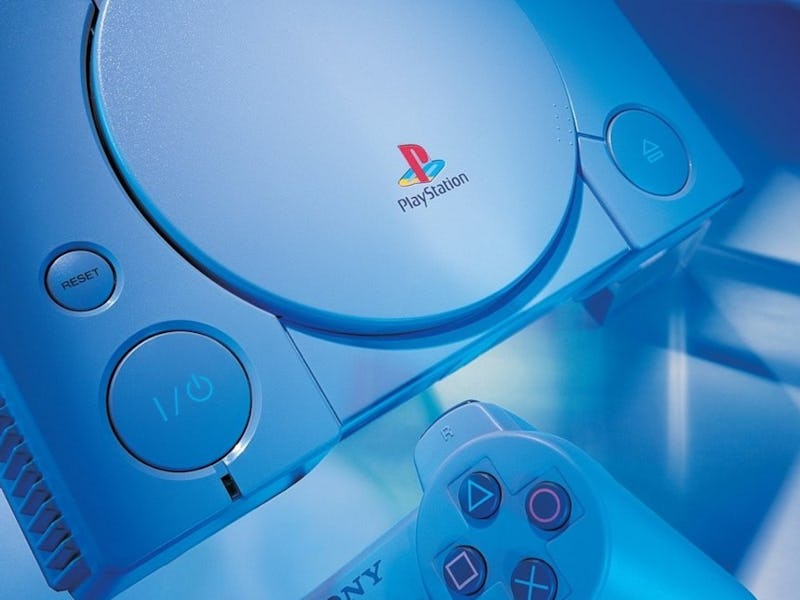PlayStation is one of those words that’s synonymous with the idea of video games, right up there with Nintendo. It’s the one word your grandparents know related to video games; when they ask you if you got that new “PlayStation” that came out and if there has a new Mario with it. But as iconic as that name is, the story behind it is surprisingly simple — according to former PlayStation boss Shuhei Yoshida.
After being with the company for over three decades, Yoshida announced his departure from PlayStation last week. Since then, he’s been making the rounds with a host of interviews. The latest, from MinnMax, is a lengthy deep dive into the history of PlayStation — from Astro Bot and the Nintendo Switch 2, to the challenges of the PlayStation 3. Buried within all that is the story of how the PlayStation got its name.
For those who don’t know, the PlayStation actually started its life as an attachment for the Super Nintendo — a joint venture between Nintendo and Sony. The partnership was ultimately ended by Nintendo, and a few years ago an extremely rare prototype of that system was floating around.
Ken Kutaragi is often hailed as the “Father of PlayStation,” and was a key figure in the company’s hardware for many years.
But in terms of how the name came around, Yoshida says that Ken Kutaragi, the engineer who oversaw the development of the system, was the man responsible.
“He named it because people use computers and call it a workstation, right?” Yoshida says, “The US people didn’t like the name. They thought PlayStation sounds very childish.”
After that, Yoshida talks about E3 1995 where Sony tried to introduce a character called Polygon Man for the reveal of the original PlayStation. Apparently, Kutaragi got really mad at the character and ordered the removal of all goods and marketing for the character — because Polygon Man only used flat-shading polygons and wasn’t a good demonstration of the graphical quality the PS1 was capable of.
The rest of the interview is filled with a veritable cornucopia of details and information. Yoshida talks about how the Nintendo Switch 2 reveal could have been bigger, and the only thing that surprised him was the mouse functionality of the Joy-Cons. Along the same lines, the most “shocking” move Nintendo ever made to him was the 3DS, but not for the reason you’re expecting.
“The biggest shock I had from competition was Nintendo’s announcement of the 3DS. Not the hardware, but the announcement they made that Monster Hunter 4 was going to come out on 3DS exclusively,” says Yoshida.
Up until then, Monster Hunter had been exclusively on PlayStation systems, specifically the PS2, where the series debuted. Years later it’s clear to see how that jump to Nintendo might have benefitted Monster Hunter, before going multiplatform and becoming one of the biggest series on the planet.
One of the other more interesting tidbits in the interview is when Yoshida talks about Wild — the canceled IP from Assassin’s Creed creator Michel Ancel. Announced in 2014, Wild was co-developed by Ubisoft Paris and Ancel’s studio Wild Sheep, while publishing was being handled by Sony. It was supposed to be an adventure-style game set in the prehistoric Neolithic period, where players could use shamanistic powers to control a variety of different animals. To Yoshida, it seems like a game that may have simply had too big of ambitions.
“There [were] lots of great ideas that didn’t really materialize into the actual game structure,” Yoshida says, “It was very open kind of thinking. One of the earliest: the map size of the game was the size of Europe.”
While Wild never had an “official” cancellation, after a few trailers it simply fizzled out and we never heard more. Ancel departed his studio in 2020, saying that Sony and Ubisoft still owned the development and rights of the game — but somewhere along the way, the title was quietly canceled.
There’s much more we could dive into, but it’s honestly a fantastic interview that you should go and watch yourself. Shuhei Yoshida has been a key figure in PlayStation’s success, both leading the company and when he stepped back to focus on indie publishing. The insight he can provide on decades of video game history is one of a kind.
